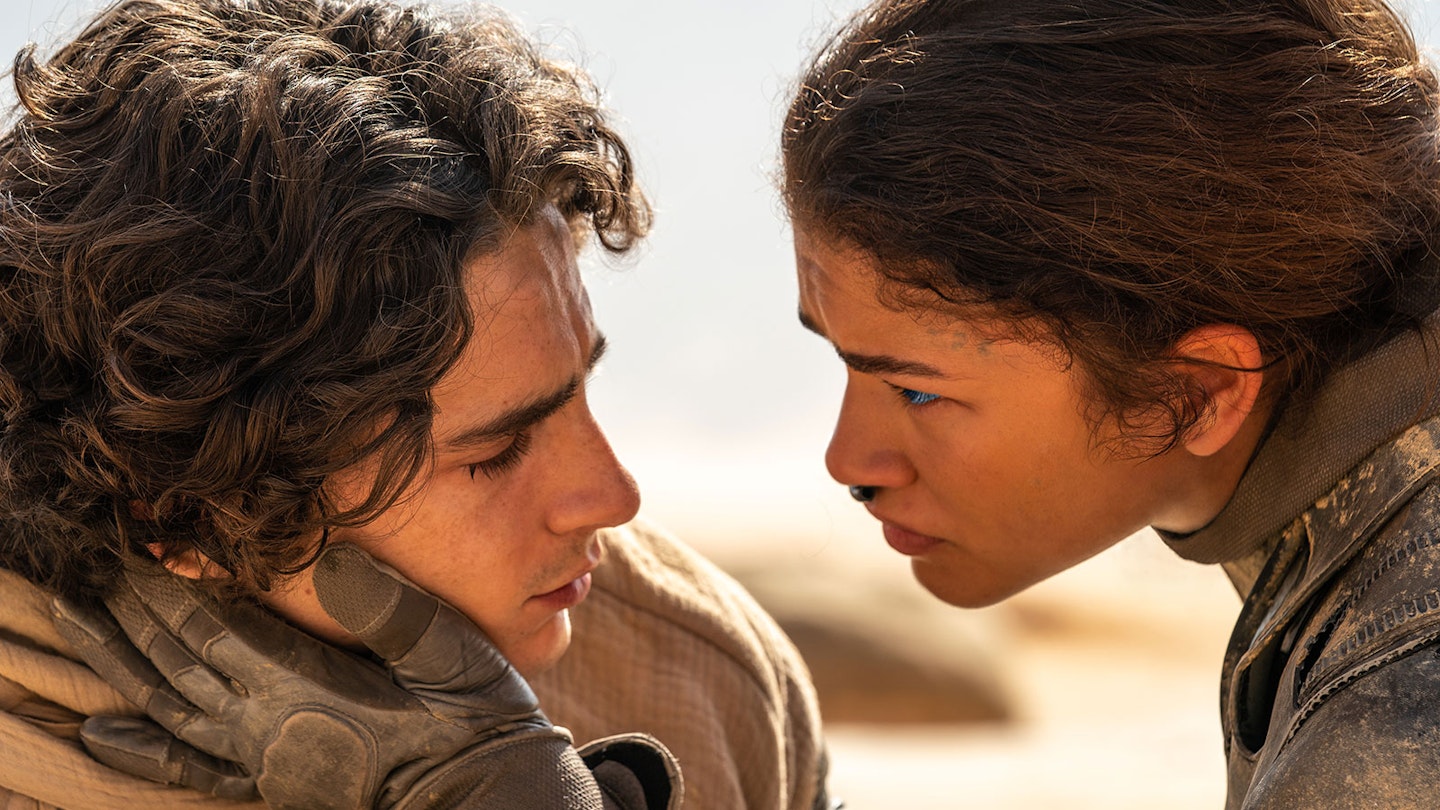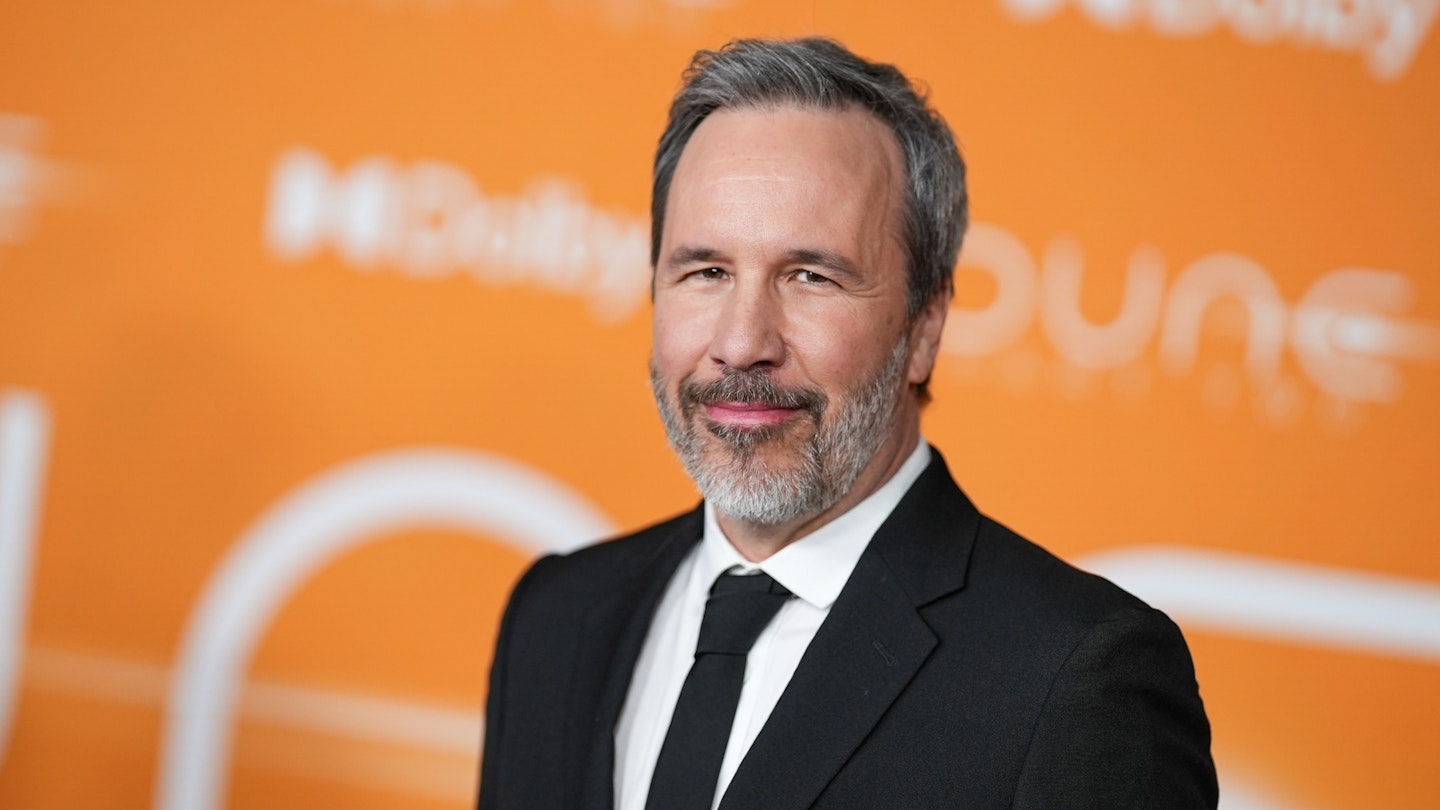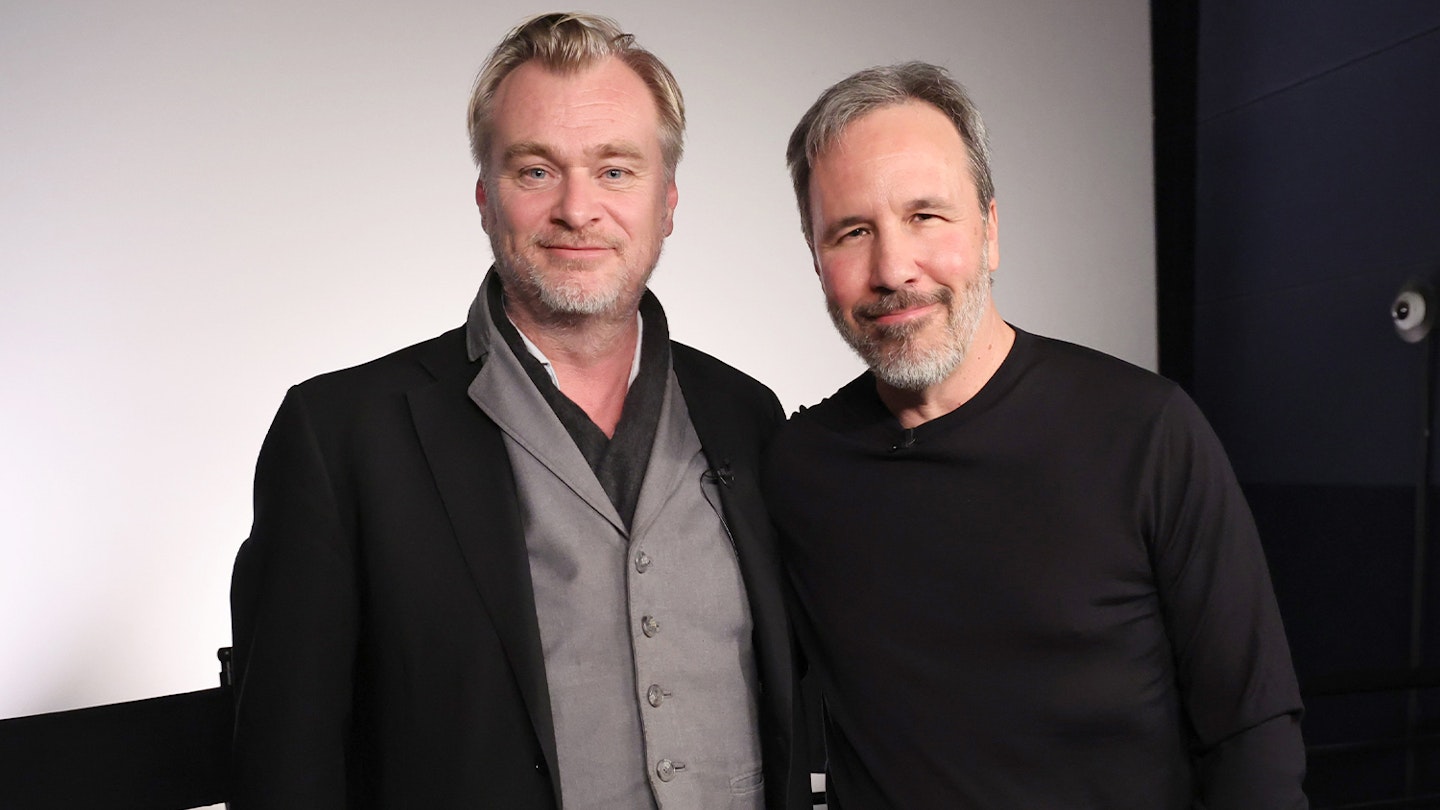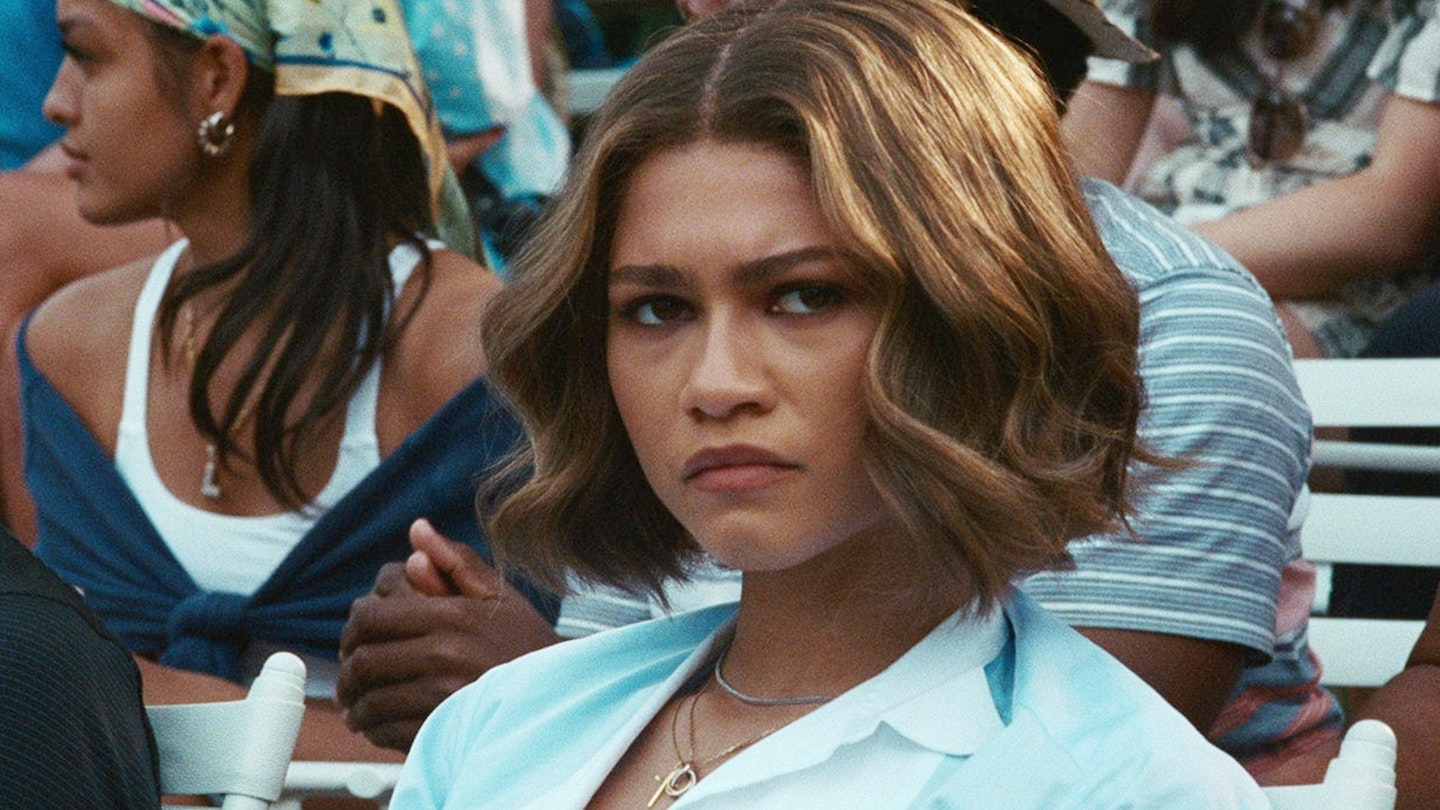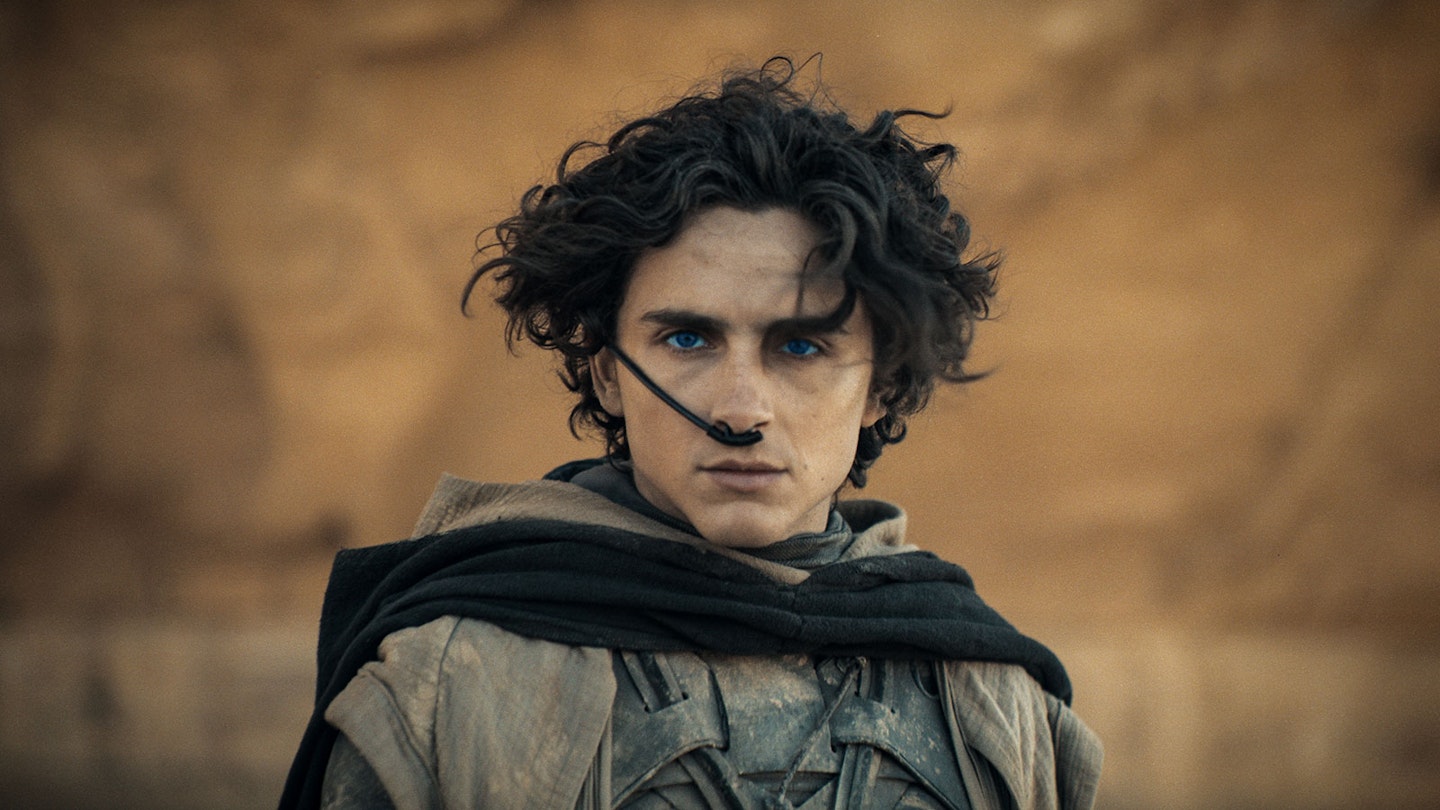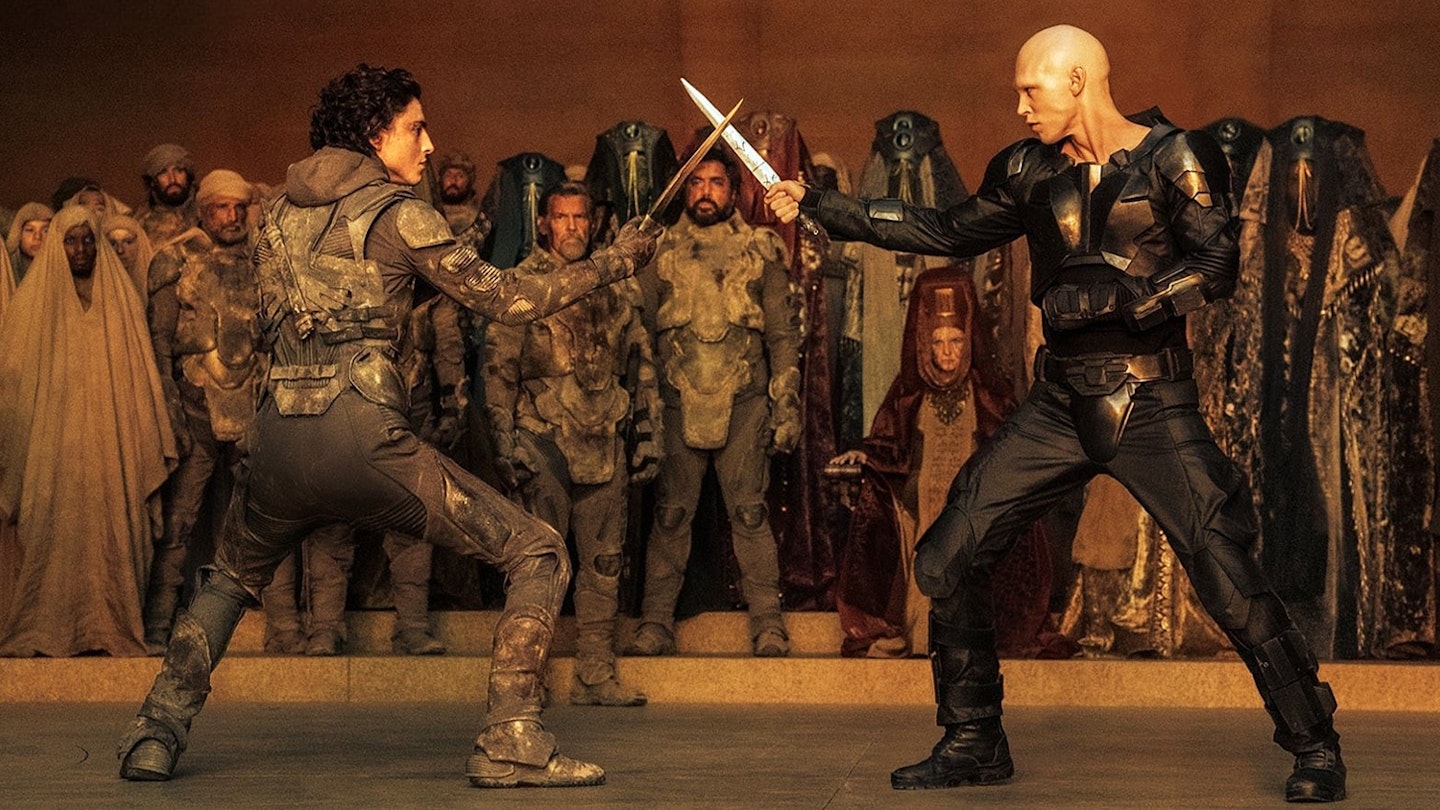You sense that Denis Villeneuve has been having Spice-fuelled visions his entire life. The filmmaker has spoken much of how reading Frank Herbert’s Dune at an early age cracked his mind wide open. Bringing the sci-fi tome’s heady mix of warring houses, psychedelic reveries, anti-colonialist themes and intergalactic action to the screen is, in a very real way, his life’s work. And once again, in Dune: Part Two, it seems the images Herbert conjured in Villeneuve’s head all those years ago are being ripped straight from synapse to screen.
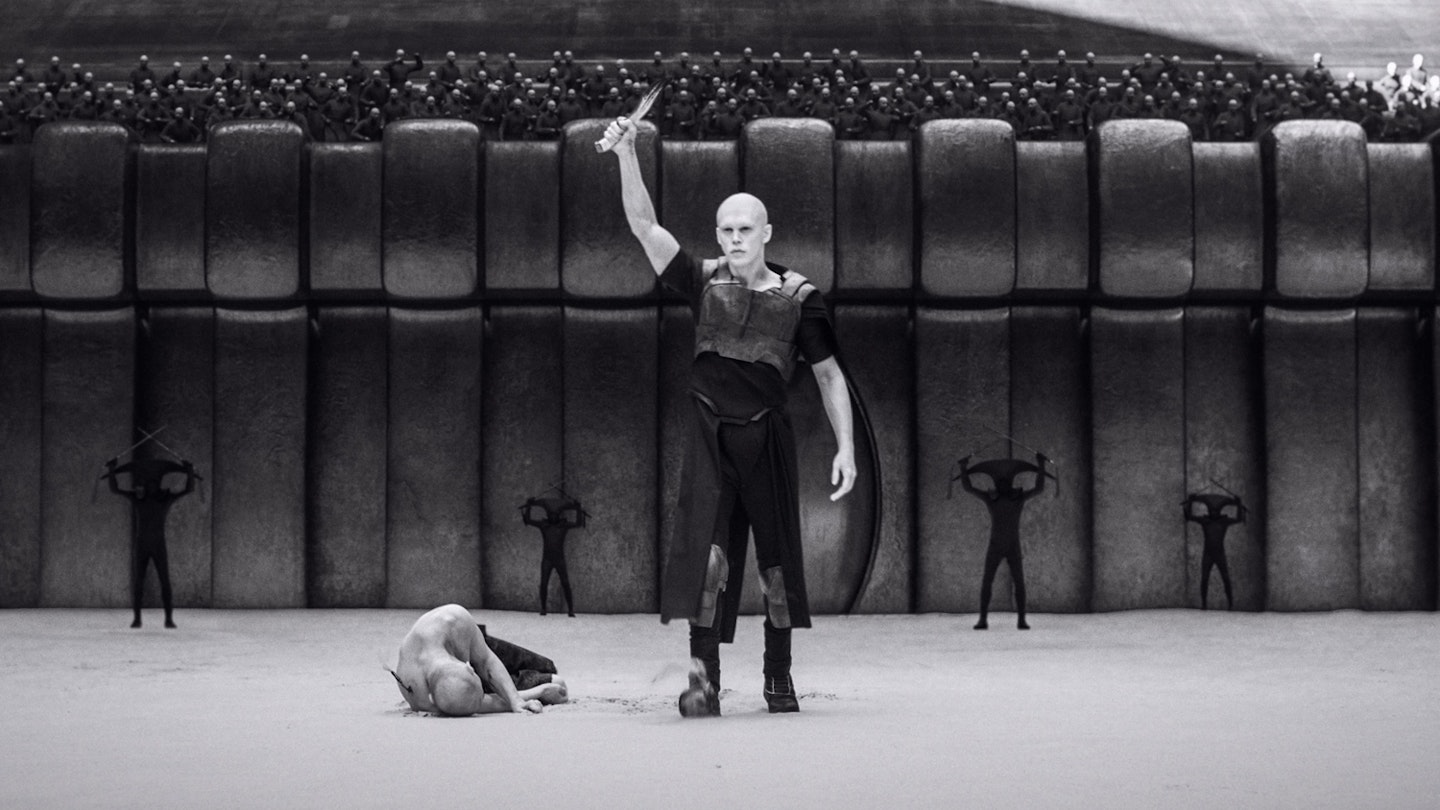
That Part Two arrives at all is something of a miracle. The filmmaker gambled on a two-part adaptation of the book, despite a sequel not being guaranteed — and the astonishing first part (by Villeneuve’s own admission, a place-setter to be paid off in later instalments) arrived in the midst of Covid. Part Two, as promised, is the war epic: a weightier, more muscular chapter with less world-building to do, but knottier narrative beats to untangle.
It picks up shortly after Part One’s end (a rewatch is advised, though Florence Pugh’s incoming Princess Irulan functions largely as a recap-voiceover), with Paul Atreides (Timothée Chalamet) and his pregnant mother Lady Jessica (Rebecca Ferguson) being accepted into the Fremen, the native people of bone-dry Arrakis. Paul, having escaped the massacre of House Atreides by the brutal Harkonnens — as machinated by Emperor Shaddam IV, a disappointingly well-behaved Christopher Walken — desires revenge on all who wronged him. Many Fremen — including leader Stilgar (Javier Bardem) — think Paul could be the ‘Lisan al-Gaib’, a prophet in their religion; except, those prophecies were intentionally laid down by space-witch meddlers the Bene Gesserit (of which Paul’s mother Jessica is one), and Paul’s Spice-visions show him possible futures where leaning into his engineered messianic ‘destiny’ results in endless bloodshed. Meanwhile, Paul falls for Fremen warrior Chani (Zendaya, here given real screentime after her fleeting turn in Part One), their budding romance complicated by… well, all the above factors.
This is Middle-earthian in ambition, Nolan-esque in the dramatic intensity of its execution.
In short, there are plenty of plates spinning — and for the most part, Villeneuve displays remarkable control over them all. Beyond that, he marshals staggering sequences to blow you to the back of your seat: an opening attack from gravity-defying Harkonnen warriors is hair-raising stuff; a ragtag rocket-launch mission with Paul and Chani taking down enemy ornithopters is breathlessly exciting; Paul’s long-awaited first sandworm ride is an overwhelming feat of sound and vision, with thunderous bass that’ll turn any regular cinema into a seat-shaking 4DX experience. And Austin Butler is the MVP of the newbies, his Harkonnen warrior-boy Feyd-Rautha (in every sense the Anti-Paul) a hairless embodiment of utter inhumanity. His stark arena battle on a distant planet — rendered entirely monochrome under a black sun that leeches all colour, the sky exploding in Rorschach blotches — is a welcome reprieve from the largely Arrakis-set action.
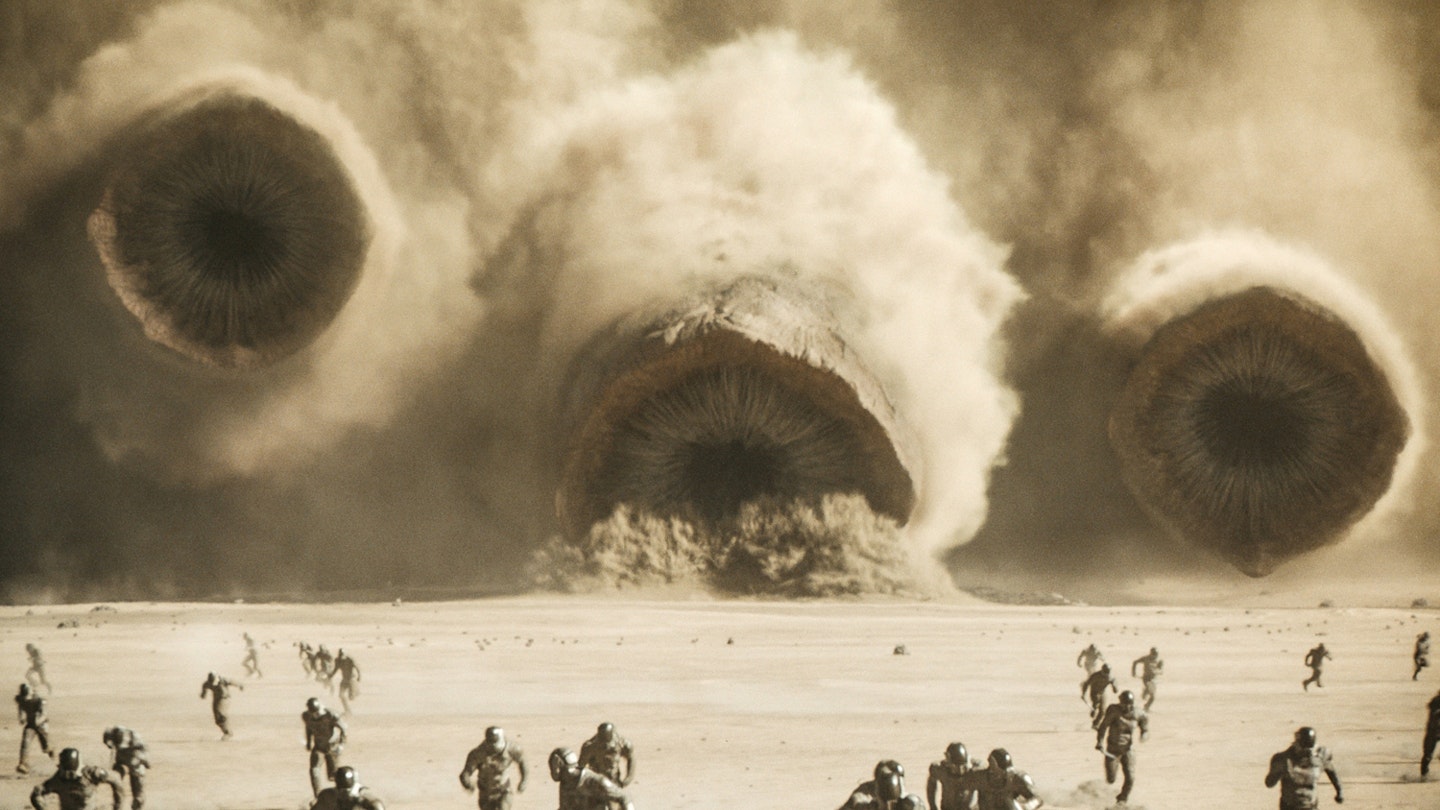
In case Part One didn’t make it clear enough, this is Middle-earthian in ambition, Nolan-esque in the dramatic intensity of its execution. If anything, Part Two is almost epic to a fault. It is a gigantic film, and for all the character work Villeneuve beds in (Paul’s naming ceremony; the most sand-based flirting in a space opera since, well, another famous Episode II), there’s a point where non-stop immensity takes over. It reaches a terminal velocity of grandiosity, a critical massiveness — and just keeps going. Despite the two-film split, there’s considerable ground to cover, with mystical plot-points that even Villeneuve struggles to wrangle. The character throughlines are forced to reckon with central figures who — through narrative necessity — become less human as the film progresses. Those who haven’t fully imbibed the Water Of Life might feel overcome by ‘epic fatigue’ come the credits.
Even then, the story isn’t over. While Part Two reaches the conclusion of Herbert’s first book, this is decidedly not the end of Villeneuve’s adaptation. Should the mooted Part Three — covering sequel novel Dune Messiah — be greenlit, it won’t be an optional coda, but a proper trilogy-closer. As such, this is firmly a middle chapter, with major threads yet to resolve.
It feels churlish to complain, given the incredible achievements on display here — uninhibited ambition from Villeneuve, more eye-melting cinematography from Greig Fraser, fresh Hans Zimmer jams (a dark inversion of Paul’s theme; a booming anthem for Feyd-Rautha), and a plot thread involving a psychic foetus. Oh, and yes, Gurney Halleck (Josh Brolin) gets a brief Baliset banger (sample lyric: “His stillsuit is full of piss…”). You might feel somewhat sandblasted by the end — but overall, it remains a remarkable display of desert power.
